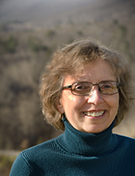Anne Pebley, UCLA
| When |
Oct 29, 2018
from 12:00 PM to 01:00 PM |
|---|---|
| Where | 1101 Morrill Hall |
| Contact Name | Jennifer Doiron |
| Contact Phone | 301-405-6403 |
| Add event to calendar |
|
About the Presentation
Social inequalities in health and disability are often attributed to differences in childhood adversity, access to care, health behavior, residential environments, stress, and the psychosocial aspects of work environments. Yet occupational stratification means that disadvantaged people are also more likely to hold jobs requiring heavy physical labor, repetitive movement, ergonomic strain, and safety hazards. We investigate the role of physical work conditions in contributing to social inequality in mobility among older adults in Mexico, using data from the Mexican Health and Aging Survey (MHAS) and an innovative statistical modeling approach. We use data on categories of primary adult occupation to serve as proxies for jobs with more or less demanding physical work requirements. Our results show that more physically demanding jobs are associated with mobility limitations at older ages, even when we control for age and sex. Inclusion of job categories attenuates the effects of education and wealth on mobility limitations, suggesting that physical work conditions account for at least part of the socioeconomic differentials in mobility limitations in Mexico. This work is part of a larger project on the role of occupational stratification in producing older age health inequalities in Mexico and the US.
About the Speaker

Anne Pebley is a social demographer at UCLA who works on a wide range of issues related to social inequality and the determinants of health, both globally and in the United States. Her current research centers on four areas: (1) immigration from Mexico and Central America and its consequences for health, (2) social stratification in labor force history and Latino-white differences in old age functional limitations, (3) neighborhood change in Los Angeles and family and child well-being, and (4) reproductive health in the Tibetan region of China. Pebley’s past research has focused on fertility, marriage, and reproductive health in poor and middle-income countries; choices between biomedical and traditional health care in poor rural populations; and social contexts and individual and family wellbeing in Los Angeles and the United States as a whole.
Prior to UCLA, Pebley was Professor of Demography and International Affairs at the Woodrow Wilson School of Public Affairs, Princeton University, and the Director of the Population Research Center at RAND. She has been President of the Population Association of America and of the Association of Population Centers. She served as Chair of the American Sociological Association’s Section on the Sociology of Population. She has also been a member of several review groups (study sections) at NIH, a member of the NAS/NRC’s Committee on Population, a Trustee of the Population Council, and on several boards of advisors for national surveys. Pebley is currently a member of the Board of Governors for the Panel Study of Income Dynamics and a Visiting Scholar at the Russell Sage Foundation.
